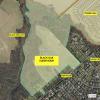As a member of Friends of Cape Henlopen State Park, I was pleased to attend our annual meeting March 8 at the Biden Environmental Center.
Jeff Underwood, our able and enthusiastic president, gave an overview of Friends activities both prior and upcoming, highlighting the substantial contributions of the many volunteers and the resulting monetary benefits derived from same. We were also honored to host Matthew Ritter, the new Delaware State Parks director. Ritter discussed many issues for the state parks, both local and statewide, including a sobering discussion of finances associated with the maintenance and operation of same. He was followed by Sean Cain, assistant superintendent at Cape Henlopen, who updated members on various park projects both current and planned. Both gentlemen thanked the members for their support and volunteer work. Lastly, guest speaker Suellen Blackwood gave an informative presentation on the Dark Sky Initiative that seeks to mitigate that impact of light pollution. Rather than attempt to summarize her discussion, I would urge interested parties to do their own research, which will reveal many interesting aspects of this topic.
Speaking solely on my own behalf, I would like to offer a few comments: Matthew Ritter spoke about the cost of upgrades and maintenance to Cape Henlopen, which amount to tens of millions of dollars. Replacement of the pier alone is estimated at $25 million, and this expenditure will inevitably be unavoidable. Various other park features are aging and in need of upgrading, including roads and in-park utilities. Therefore, I would suggest that we not immediately dismiss revenue-generating proposals that could be applied to these unavoidable future expanses. This would include the recent cabin proposal and even, dare I say it, the ill-fated and much-opposed restaurant idea. It appears that higher fees are unavoidable moving forward, and voluminous complaints are predictable when that happens. With regard to these and other park issues, I would politely suggest that area residents who are not park users, volunteers or nearby property owners refrain from sweeping, knee-jerk commentary.
Finally, a question arose concerning the map dated July 2024 that is commonly handed out to park visitors. The map seems to indicate a seasonal closure from March 1 to Sept. 1 for the area beginning at Herring Point and extending south to Gordons Pond, identical to the long-established Point closure protecting migratory birds during the same time period. This is an apparent misprint. Director Ritter will further review the matter.















































